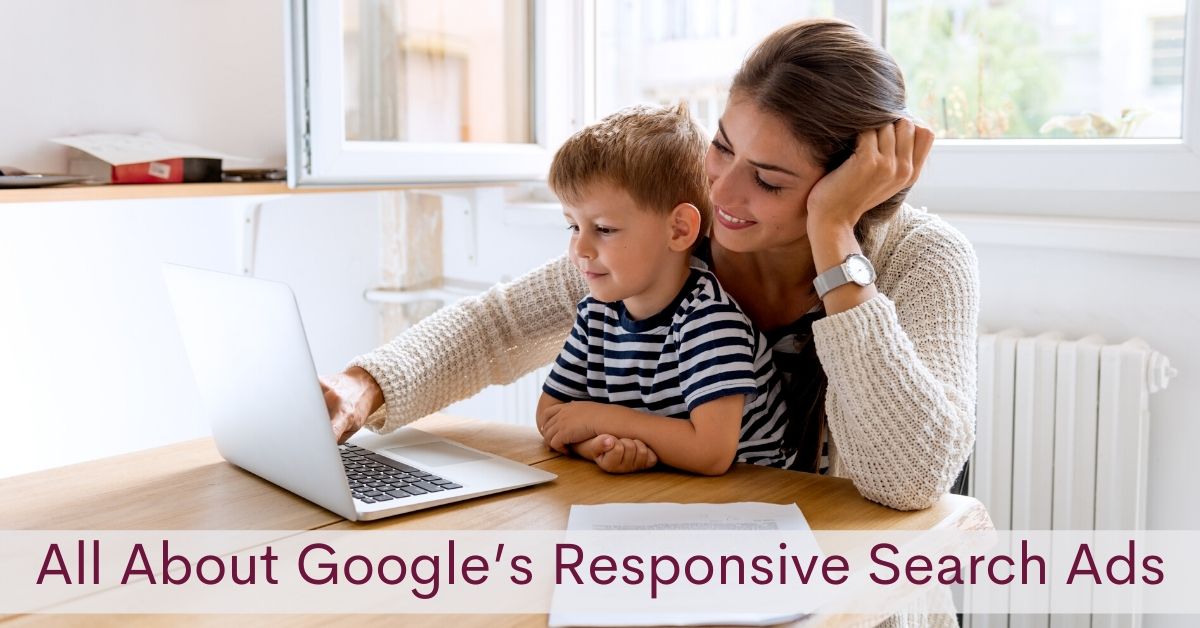Google continues to add new options and functionality to Google Ads. The introduction of responsive search ads is one of the most revolutionary changes in recent years. Responsive search ads can improve the cost per click, click through rate, and conversions of your healthcare practice. Read on to find out how.
What are responsive search ads?
Some people considered the traditional search ads in Google’s platform to be a little restrictive, with Extended Text Ads restricted to two headlines and a single line description of 80 characters.
Google is providing a broader scope for innovation with the introduction of responsive search ads. With responsive ads, you can create up to 15 different headlines (of 30 characters) and up to 4 different descriptions (of 90 characters) while writing a Responsive Search Ad.
After generating the headlines and descriptions, Google Ads arranges them into various combinations using artificial intelligence ( AI) to learn the combinations which work best for potential customers. Those headlines and explanations can be organized in 43,680 different variants, ensuring the possibilities of ad testing are almost infinite!
Over time, your Responsive Search Ads can serve different searchers with the most suitable message based on the keyword they are using, their browser, past browsing history, and other signals. Users will ultimately always see the versions of your ad, which is most related to their needs and interests.
The benefits of responsive search ads
Having the option to use numerous headlines and explanations gives your healthcare practice an exponential advertising boost, especially in a competitive marketplace. Below are a few of the main advantages of responsive search ads.
Better Performance.
Responsive Search Ads tend to attract a higher clickthrough rate (CTR) than regular ads. This is because they appear in more searches, and are also more relevant to audiences. These will, therefore, draw more clicks, which likely lead to more conversions.
Making the most of machine learning.
The essence of machine learning is that, as it collects more data, it gets smarter over time. It often doesn’t make the same mistakes as humans do. This means that your advertising can be more tailored as time goes on, and you can have more focused, engaging advertisements for each section of your audience.
More options when testing
Compared to traditional ads, you have more room in the base content, with three headlines compared to two, and two fields of definition of 90 characters rather than a single line of 80 characters. You can build up to 15 headlines and 4 explanations once you employ Responsive Search Ads, which means you have plenty of flexibility to test.
No need to test manually
In the age before responsive search ads, advertisers created variants of a commercial and utilized manual A / B testing to find out what worked best. This new ad type automates the manual process, which saves time and increases your ad’s performance.
Leveling the playing field
Over the years, digital marketing has become more complex. It’s at a point where those that don’t have access to the software as a Service (SaaS) and Data as a Service (Daas) programs will find it hard to compete.
Such systems help organizations collect, compile, and analyze vast quantities of data that no person can do by themselves. Via automation, they remove many tedious yet essential digital marketing activities. While these are great, they are expensive, and out of the budget range for most small healthcare practices.
By releasing responsive search ads, Google helps place small healthcare practice companies on a more level playing field with larger companies. This allows them access to resources that improve user service and maximize ad efficiency more quickly.
The move toward automation is nothing new, and this recent iteration of Google Ads is suitable for small business owners such as yourself. AI and machine learning help you create more complex, engaging, and tailored advertising, from smart campaigns and automated bidding to responsive search ads.
Dr. Websites
Want to find out more about how your healthcare practice can advertise on Google — and increase the revenue from your business? For more details, please contact us today.

